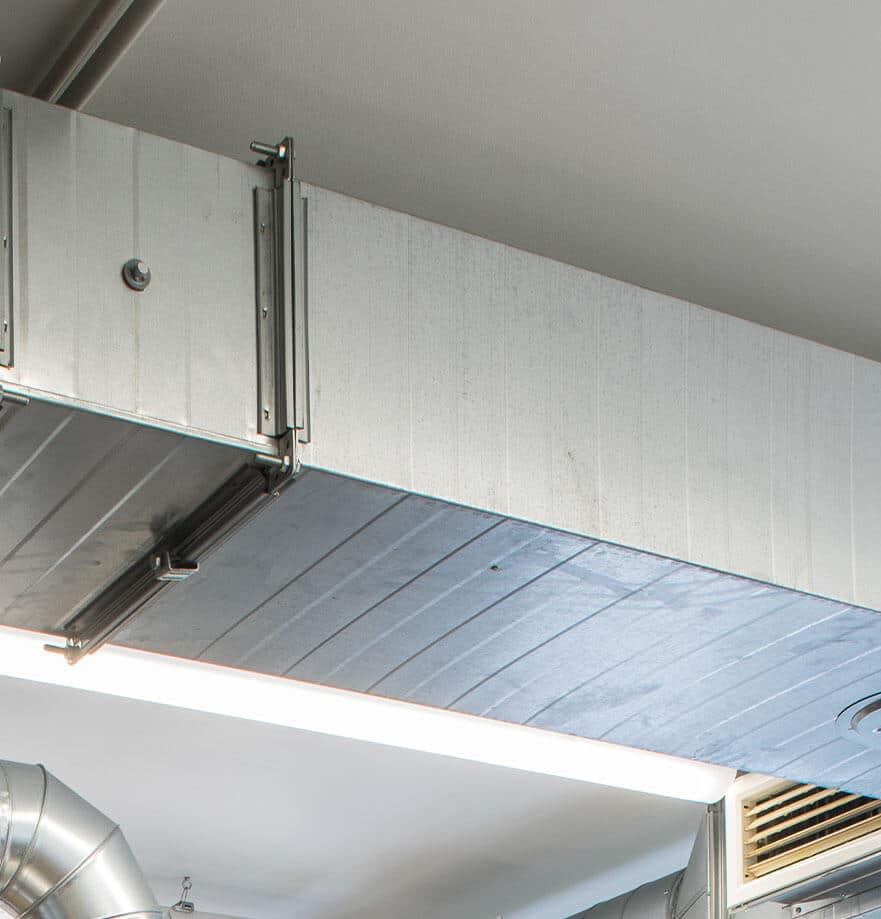HVAC
HVAC stands for heating, ventilation, and air-conditioning. Often, it’s also referred to as HVAC/R, with the R representing refrigeration. An HVAC/R or HVAC technician is a professional who services HVAC and refrigeration equipment. This includes installation, maintenance, and repair work.
The job growth in this field is promising: the United States Bureau of Labor Statistics (BLS) predicts that employment will increase 15 percent by 2026. Major reasons for this growth are the rising popularity of sophisticated climate-control systems, and a strong commercial and residential construction industry.
If you’re interested in pursuing an HVAC career, you might be wondering how much HVAC school costs. Following is a breakdown of expenses associated with becoming an HVAC technician.
HVAC Career Path
To start an HVAC career, you typically need some postsecondary training. Employers these days tend to prefer candidates who have completed formal HVAC training, as HVAC systems have become increasingly complex. The steps to becoming an HVAC technician usually include:
- High school diploma/GED certificate:
A high school diploma (or equivalent) is often the minimal educational requirement for enrolling in postsecondary training. Start your HVAC training by finishing high school or getting a GED certificate.[3] - Postsecondary training:
Aspiring HVAC students may choose to enroll in a postsecondary skilled trades training program. HVAC training programs are offered by vocational schools and community colleges. Some may also elect to learn the trade through apprenticeships or on-the-job-training.[4] - Certifications & Licenses:
Depending on your state, you may need to get a license before you can work as an HVAC technician. In addition, you must obtain United States Environmental Protection Agency (EPA) Section 608 Technician Certification if you handle ozone-depleting refrigerants. Some HVAC techs also decide to get certifications from industry organizations.[5]
HVAC Training Cost
HVAC school cost varies depending on where and how you get your training. Some programs are short and cost a bit more, but allow you to enter the workforce quickly. Other options let you earn money while in training, but may take years to finish. Let’s take a closer look:
Vocational school
- Cost: The cost for HVAC certificate programs typically ranges between $1,200 and $15,000. Depending on what the program offers, the price tag can differ. More costly programs may, for example, include EPA examination fees and a tool kit. Associate degrees in HVAC technology can cost between $15,000 and $35,000.[6] Delta Technical College’s HVAC/R-MAR Technician training program costs a little less than $15,000(for tuition and fees).[7]
- Length: Typically, a certificate degree program lasts anywhere from six to twelve months, while an associate’s degree program takes two years. Delta Tech’s HVAC/R-MAR Technician Program is nine months.
- Work opportunities: Programs with flexible schedules may make it possible for you to work while in school. For example, at Delta Tech we offer daytime and evening classes for our HVAC/R-MAR Technician Program. Shorter certificate programs allow you to complete your training and begin at an entry-level job more quickly.
Community college
- Cost: The national average cost for public community college is $4,868 per year for in-state students and $8,614 for out-of-state students. For private colleges, the average yearly tuition is $15,467 per year.[8]
- Length: Associate degree programs normally take two years, whereas certificate programs can be completed in less than a year. Associate degree programs tend to be more common at community colleges.
- Work opportunities: To complete an associate degree program in two years, students usually have to be enrolled full-time. Yet, some schools may offer the option take fewer classes per semester and work part-time.
Apprenticeships
- Cost: HVAC apprenticeships cost between $500 and $2,000.
- Length: An HVAC apprenticeship normally lasts three to five years.
- Work opportunities: As an apprentice, you may work under the supervision of an HVAC technician and earn a percentage of the typical wage. You complete any necessary coursework at home.[9]
HVAC Certification Cost
As an HVAC technician, you have to get certain certifications and licenses to be able to perform some specific HVAC job duties. You can also obtain industry certifications to polish your resume and improve your career prospects.
- EPA Section 608 Technician Certification: Any technician who handles ozone-depleting refrigerants must be EPA-certified. There are four types of certification available, depending on what kind of appliance you service. Prices vary depending on the type of certification, study materials, and testing site.[10]
- Mississippi HVAC Contractor License: In Mississippi, you need to get a license from the Mississippi State Board of Contractors if you work on privately funded projects over $100,000 or publicly funded projects over $50,000. Commercial licenses cost $200 and residential licenses cost $50.[11]
- Industry certifications: HVAC organizations like North American Technical Excellence (NATE) and HVAC Excellence also provide certifications. How much each exam costs depends on the type of certification you seek.[12]
Learn more about how long it takes to become an HVAC technician here.
Beginning your HVAC Career Path
The cost of HVAC school largely depends on which educational route you choose and what certifications and licenses you need. Some HVAC training programs include EPA exam fees in their tuition fees. You should also consider expenses for books and supplies, as well as room and board. Planning out your HVAC training in advance can help you manage your expenses better.
HVAC School In House Information
Online HVAC School
HVAC Schools in Each State


